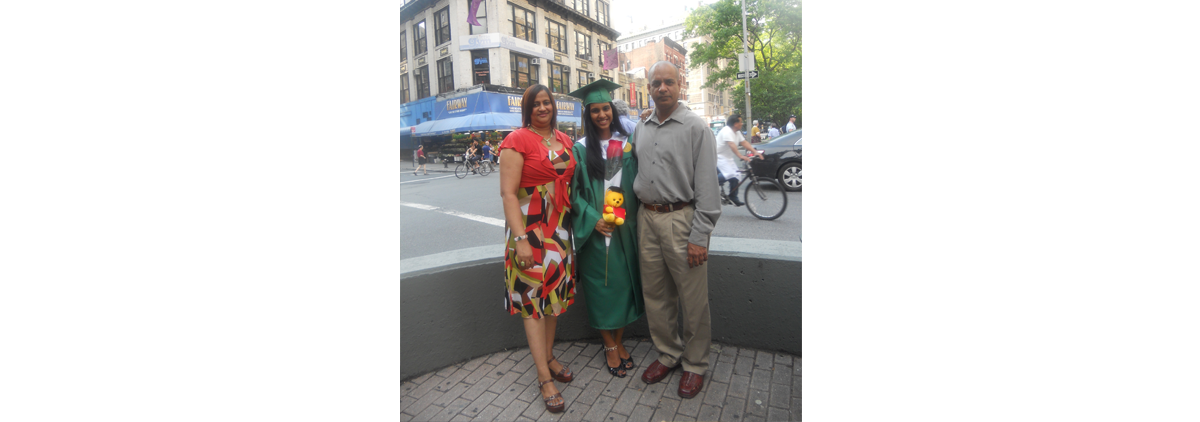Ashmera Mohamed’s early morning car rides to school in Georgetown, Guyana gave her a glimpse at the STEM career that lay ahead of her. “I would count the number of trucks on the highway and analyze cricket scores with my father,” she
says. That impulse to find order in complex systems would help her flourish as she explored a future in engineering. “STEM was always something that was innately a part of me,” Ashmera recalls. "I was always inquisitive and observant growing
up.”
As a Global Beverages R&D Senior Engineer, she applies those skills to find innovative ways PepsiCo can reduce water use at its facilities. “I realized that being in STEM is, at its core, creative because we have to think out of the box to solve
new and complex problems,” Ashmera says.
Forging her career path in R&D required an ability to problem-solve in different ways. “When it came to understanding how to navigate college or how to navigate my first job, there was no blueprint for me to follow,” Ashmera explains.
“I had to figure out ways to have mentors and what questions to ask them.” She found an early support system starting with a high school teacher who introduced her to the possibilities of studying engineering and college professors who
encouraged her to use her talents in STEM fields.

Ashmera with her parents at her graduation from Bronx High School of Science.
Tapping into a network of mentors continues to be key to helping Ashmera excel at PepsiCo. She connects with a group of women monthly as a member of PepsiCo’s Women Inclusion Network (WIN) Employee Resource Group (ERG). They discuss challenges they
face in the field, including the importance of self-advocacy and psychological safety. “ERGs give you a place to test new skills, find friends, learn about each other, bond over your similar interests and explore your differences,” Ashmera
says.
In seeking a platform to amplify the voices of other women in STEM, Ashmera is a part of PepsiCo's New York chapter of the Society of Women Engineers. One of her most notable accomplishments was putting together a panel for the national and local conference
where employees shared their experiences as a “first” in the STEM field. “For me, progressing in my career is only joyous if I am also holding the door open for others or finding potential doors they can step through,” Ashmera
says. “I know that I would not have gotten as far in my career as I've gotten without the mentors that have been there for me.”
I know that I would not have gotten as far in my career as I've gotten without the mentors that have been there for me.
Now, Ashmera wants to help show other girls that working in STEM is a possibility for them, too. "I think one of the biggest doubts I had was this feeling that I'm not good enough to be a STEM major because I didn't really see anyone that looked like
me,” she explains. “I know how it feels to be an ‘only’ or ‘one of few.’”
She's not wrong: According to this year’s Science and Engineering Indicators report, women represented roughly 34% of all STEM workers in 2019. Ashmera sees a future where that number changes dramatically.
“Everyone always says, ‘Wow,
it's so amazing that you're a woman in STEM.’ I want to see less of that,” Ashmera says. “I want it to be normal for a young girl to say that she wants to grow up and pursue a career in STEM and not something that's treated as this very
rare occasion in our society.”